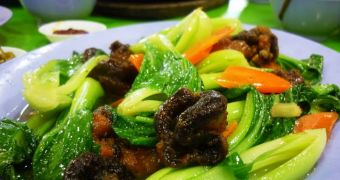A new study whose findings have recently been published in the British Medical Journal Open shows that folks who opt for a low-carbohydrate vegan diet have a lower heart disease risk.
Specifically, data at hand indicates that, over a period of time of 10 years, a low-carbohydrate vegan diet, otherwise known as the Eco-Atkins diet, can cut heart disease risk by approximately 10%.
Add to this the fact that people that opt for the Eco-Atkins diet have an easier time keeping their weight in check, and one might get the perfect recipe for increased life expectancy.
Then again, the jury is still out on whether or not a life without bacon and fresh breadsticks is worth living, so let us not get ahead of ourselves.
The Eco-Atkins diet encompasses nuts, vegetable oils, soy products and avocado, which serve as fat sources, and soy, vegetables, and cereals, which provide proteins. Barley and low-starch vegetables are carbohydrates sources.
Experiments carried out with the help of 23 volunteers, i.e. obese men and women, have shown that, over the course of six months, a low-carbohydrate vegan diet can help reduce cholesterol by 10%, EurekAlert informs.
What's more, Dr. David Jenkins with the University of Toronto in Canada and fellow researchers claim that, when compared to individuals who opt for a high-carbohydrate, low-fat diet, those who stick to the Eco-Atkins diet tend to lose more weight faster.
The researchers maintain that, since the diet that the volunteers were asked to keep was by no means a strict one – the men and women got to plan their own meals and only had to stick to several guidelines – there is no reason why more people could not embrace it.
“We killed two birds with one stone – or, rather, with one diet. We designed a diet that combined both vegan and low-carb elements to get the weight loss and cholesterol-lowering benefits of both,” Dr. David Jenkins says in a statement.
“We could expect similar results in the real world because study participants selected their own diets and were able to adjust to their needs and preferences,” the University of Toronto specialist goes on to argue.
Just for the record, it need be said that the volunteers who took part in this study consumed 60% of their estimated caloric requirements throughout the duration of the experiment. Of the calories that they did consume, about 26% came from carbohydrates, 31% from proteins, and 46% from fat chiefly originating from vegetable oils.

 14 DAY TRIAL //
14 DAY TRIAL //